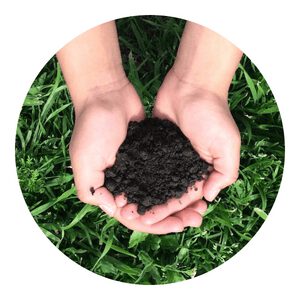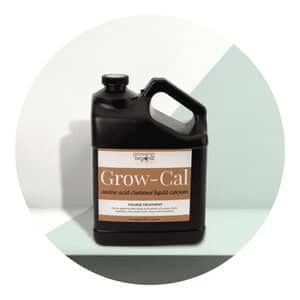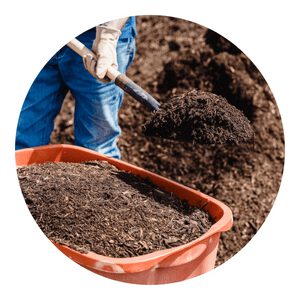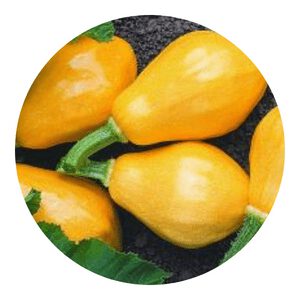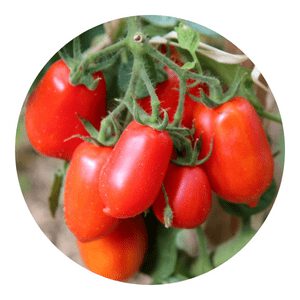What is the Best Organic Fertilizer For Pumpkins?
Pumpkins are a much-loved vegetable with an incredibly versatile range of uses, from soups to pies and jams.
To ensure the best quality pumpkins possible, it is important to give them the right amount of fertilizer.
Organic fertilizer is an ideal choice for pumpkin growers as it provides natural nutrients that help the pumpkins thrive.

Table of Contents
Organic Fertilizer for Pumpkins
Organic fertilizer is a great choice for anyone looking to grow perfect pumpkins.
It’s an easy way to ensure that your pumpkin patch gets the nutrients it needs without the use of harsh chemicals or synthetic fertilizers.
Organic fertilizer helps build organic matter in the soil, which allows for better water retention and improved aeration.
This can help promote healthy root growth and increase yields.
Organic fertilizers can be made from natural sources such as compost, manure, green manures, rock dusts, and other plant materials.
These materials provide necessary nutrients like nitrogen, phosphorus and potassium as well as trace minerals needed for pumpkin growth.
Composting is a great way to provide these essential elements; adding composted material will help improve drainage and add valuable organic matter over time.
Benefits of Organic Fertilizer
Organic fertilizer is a great way to increase the health of your pumpkin plants.
It helps to provide them with the essential nutrients they need to remain healthy and productive.
Organic fertilizers are derived from natural sources, such as compost or manure, and are free from synthetic chemicals or other additives.
With its many benefits, organic fertilizer can help ensure that your pumpkin plants will produce larger and healthier pumpkins for harvesting.
Organic fertilizer helps improve soil quality by adding beneficial bacteria, mycorrhizae fungi, and minerals that work together to break down organic matter into usable nutrients for plants.
This helps create a more balanced environment which leads to healthier plants with improved root systems and increased resistance against disease and pests.
Additionally, since organic fertilizer provides slow-release nutrients over time it encourages better overall growth in comparison to synthetic fertilizers which can lead to nutrient deficiencies if used incorrectly.
Types of Organic Fertilizers
Organic fertilizer is an essential part of growing any type of plant, including pumpkin.
Organic fertilizers are naturally derived and can help improve the quality of your soil while improving the health and growth of your plants.
Manure is one type of organic fertilizer commonly used in gardening.
Manure contains significant amounts of nitrogen, phosphorus, and potassium which are necessary for healthy plant growth.
Additionally, it can add valuable nutrients to the soil such as calcium, magnesium, sulfur and boron.
Manure is easy to find at garden centers or local farms but should be composted before use since it contains high levels of ammonia which may burn plants when applied directly.
Compost is another popular organic fertilizer option for gardens.
Compost
Organic fertilizer is the best way to provide your pumpkin plants with the nutrients they need for healthy, productive growth.
Compost organic fertilizer is an excellent choice for providing your pumpkin plants with essential nutrition.
It is made from composted plant material and can be used as a top-dressing or side dressing around the base of each plant.
Here’s how you can use compost organic fertilizer for your pumpkin plants:
First, prepare the soil by loosening it up to a depth of 12 inches and removing weeds and debris. Then mix in 3 to 4 inches of compost organic fertilizer into the loose soil bed.
This will provide enough nutrients for your pumpkins throughout their growing season. Try to avoid over-fertilizing as this can cause damage to the roots and leaves of your pumpkin plants.
My pumpkin patch so alive, Organic fertilizer kept it thrive, Without chemicals of any kind, It was healthy and safe to my mind. No toxins or pollutants to harm, To keep it in shape like a charm, Organic fertilizer helped the plant bloom, Delicious pumpkins in Summer Noon.
Chappy The Gardener
Blood Meal
Organic fertilizer is an excellent choice for growing pumpkins as it provides essential nutrients to the soil and helps provide lush, healthy plants.
Blood meal organic fertilizer is a fantastic option for pumpkin growers due to its high content of nitrogen and other beneficial minerals.
Utilizing this natural product in your garden will help ensure that your pumpkin crop gets off to a strong start!
When using blood meal organic fertilizer in your garden, it’s important to apply it correctly.
You can sprinkle the powder or granules on the soil surface around the base of each plant, working it into the soil with a rake or hoe.
It’s best to add this nutrient boost every four weeks during the growing season.
Bone Meal
Organic fertilizer for pumpkin is a great way to get the most out of your garden.
When it comes to fertilizing your pumpkin plants, using bone meal organic fertilizer can be an excellent choice.
This type of fertilizer provides essential nutrients such as calcium and phosphorus that are essential for healthy plant growth.
Additionally, bone meal organic fertilizer works well on sandy soils and helps retain moisture in the soil, providing an ideal environment for pumpkins to thrive.
Using bone meal organic fertilizer is easy; simply mix one tablespoon of it with 1 gallon of water and apply directly to the root zone or around each individual plant’s base.
It’s important not to overapply this type of fertilizer; too much can damage your plants’ roots and lead to stunted growth.
Additionally, always wear gloves when applying this type of fertilizer as it may cause skin irritation if touched directly.
Manure
Organic fertilizer is often used by farmers and gardeners to help promote healthier plants and vegetables.
Menure organic fertilizer is a type of natural fertilizer that provides essential nutrients for pumpkin plants.
Menure organic fertilizer is made from composted manure which contains trace elements and other helpful ingredients like fungi, bacteria, protozoa, earthworms, etc.
It’s essential that the soil be well-draining before applying Menure as it may otherwise cause root rot or other diseases due to over saturation.
The recommended application rate of Menure is 2-3 pounds per 100 square feet of soil mixed in with the top 6 inches prior to planting or sowing seeds.
Mushroom Compost
Organic fertilizer is a great way to ensure that your pumpkin plants grow healthy and strong.
Mushroom compost organic fertilizer is an ideal choice for those looking to give their pumpkin plants the best nutrient mix possible.
Not only does mushroom compost provide the necessary minerals and nutrients needed for a healthy, thriving crop of pumpkins, but it also helps promote soil health by adding beneficial microbes and fungi into the environment.
Mushroom compost organic fertilizer can be applied in several different ways depending on your individual needs and garden layout.
For direct application directly to the soil, simply spread mushroom compost around each of your pumpkin plants at a rate of 2-3 inches deep per plant.
Make sure to evenly distribute the compost around each plant so that all parts are receiving adequate nutrients from the breaking down material.
Fish Emulsion
Organic fertilizer is an important factor in growing healthy pumpkins. One of the most popular organic fertilizers for pumpkin plants is fish emulsion.
Fish emulsion provides essential nutrients that promote vigorous growth and generous harvests.
Here are some tips on how to use fish emulsion organic fertilizer for your pumpkin plants.
To begin, prepare your pumpkin patch by tilling the soil deeply and adding compost or aged manure to add beneficial microorganisms.
Ensure that your soil pH is between 6-7 before planting seedlings or seeds into the ground.
Once you’ve planted, water thoroughly and apply a light layer of mulch around each plant to keep weeds down and conserve moisture.
Next, mix one tablespoon of fish emulsion per gallon of water and then use it as a foliar spray on leaves once every two weeks during the growing season.
Kelp Meal
Organic fertilizers are a great way to help pumpkins grow and thrive.
Kelp meal organic fertilizer is an excellent choice for pumpkin growers, as it provides essential nutrients that can help promote larger and healthier fruits.
Here’s how to use kelp meal organic fertilizer for pumpkin planting and cultivation:
Firstly, mix the kelp meal into the soil prior to planting by working it into the top 8-10 inches of soil.
This will ensure that your seedlings have access to all of the beneficial minerals and trace elements in the kelp right away.
Additionally, you can also side dress your pumpkin vines with a layer of kelp meal every 6 weeks or so throughout the growing season.
You should also make sure that you water your plants after applying any type of fertilizer, including kelp meal organic fertilizer.
Best Time to Use
Organic fertilizer is a great way to provide your pumpkin plants with the nutrients they need to thrive.
Not only does organic fertilizer offer essential minerals and vitamins that are beneficial for healthy, strong plant growth, but it also works in harmony with nature to create a balanced ecosystem.
Knowing when to use it can be the difference between a successful harvest or one that falls short of expectations.
The best time to use organic fertilizer is when your pumpkin plants are actively growing and flowering.
This will give them the proper nutrients for blooming beautiful flowers that will eventually lead to ripe, tasty pumpkins!
For best results, work the organic fertilizer into the soil around each plant after planting but before germination occurs.
Watering deeply once weekly during this period will help ensure the roots absorb all of the necessary elements from the fertilizer.
Application Tips
Pumpkins are a popular seasonal crop, requiring a lot of nutrients to grow healthy and strong.
Organic fertilizer is the perfect solution for giving your pumpkin patch the nutrient-rich soil it needs, as well as providing protection against pests and disease.
Here are some application tips to ensure your pumpkins receive optimum organic fertilizer benefits.
To start, you’ll need to apply an organic fertilizer mix when planting pumpkins.
Work the mix into the top few inches of soil before planting, incorporating it evenly throughout the area where your pumpkins will be growing.
Aim for one pound of organic fertilizer per 100 square feet of land – if you’re unsure how much that is, find out with a handy calculator online!
Cautions and Considerations
Organic fertilizer is a popular choice for many gardeners, and those looking for an alternative to conventional chemical fertilizers.
While organic fertilizer can boost yields of pumpkins, it’s important to understand the cautions and considerations that come with using this type of product.
Organic fertilizers are typically more expensive than their chemical counterparts, so cost can be a factor when deciding which type of fertilizer to use.
In addition, organic fertilizers have different nutrient makeup than chemical fertilizers and deliver nutrients at a slower rate.
This means that gardeners must adjust their application rates accordingly in order to get the desired results from the fertilizer.
Organic fertilizer also needs to be replenished more often than its chemical counterpart as it breaks down over time due to microbial activity or leaching from soil erosion.
In conclusion,organic fertilizer for pumpkins is a great way to ensure your pumpkins have the nutrients they need to thrive.
It has many benefits, such as being easy to apply, improving soil fertility, and allowing the soil to retain moisture better than chemical fertilizers.
The use of organic fertilizer also helps reduce toxic chemicals in the environment and can help improve the overall health of your pumpkin patch.
Additionally, organic fertilizers are often more cost-effective than chemical options.
Click To Grow
Helps Us Grow – Share If You Like





